Creating those first school memories is something many of us cherish, and residential trips often sit right at the heart of them. For primary school pupils, especially those in Years 3 and 4, a first overnight adventure away from home is more than just exciting. It’s a real milestone in their personal and social development.
But from an educational perspective, these early experiences also carry lasting value. A first residential can help pupils grow in confidence, learn independence, and develop skills that support both their learning and their wellbeing. Teachers and parents often notice the difference when children return from their stay, proud of what they’ve achieved and better equipped to face new challenges.
Why a first residential trip matters in primary school
For children in Years 3 and 4 (typically ages 7–9), this stage of development is a crucial time to start building independence, resilience and social confidence. Psychologists such as Erik Erikson describe this period as the “industry versus inferiority” stage, where children develop a sense of competence by taking on new challenges and mastering skills. Providing opportunities for positive experiences outside the classroom at this age can have a lasting impact on their self-belief and motivation to learn.
A first residential trip offers exactly this kind of opportunity. In a safe and supportive environment, children can begin to test their independence, staying away from home, managing their own belongings, and taking part in activities that gently stretch their comfort zones. Unlike being “thrown in at the deep end” with a long or highly challenging residential later in primary or secondary school, shorter first-time experiences are carefully designed to be encouraging rather than overwhelming.
Moments like these become powerful milestones. Just as we remember our first bike ride, first holiday, or first sleepover, many children remember their first school trip away with pride. When that memory is positive, it sets the tone for future learning journeys. Teachers often report that children who have enjoyed a short residential early on approach the rest of their school life, from upper KS2 right through to secondary, with greater confidence and adaptability.
Let’s take a deeper look at the benefits of that first residential trip.
The benefits of first residential trips
The advantages of taking pupils on their first residential extend far beyond a few days away from the classroom. These experiences provide opportunities for children to practise independence, build stronger relationships, face challenges with resilience, and see learning come alive in new ways. Each of these outcomes supports not only personal growth but also academic progress, making residentials a powerful tool for primary education.
 Confidence and independence away from home
Confidence and independence away from home
That first time away from home brings a whole host of responsibilities that children often don’t consider. Putting them in an environment where they are encouraged to take on responsibilities such as making their own bed, looking after their own belongings or making sensible choices during activities and mealtimes helps them frame their mindset to be more independent and tackle roles that may be unfamiliar.
Not only does this help them maintain their independence, but it also strengthens their confidence and self-belief. They will often feel a sense of pride for what they are able to achieve on their own, and these simple tasks are small boosts that help push that confidence further.
Pupils often return to school more willing to take responsibility and more confident in their abilities, showing just how powerful these early experiences can be.
 Teamwork and social development through shared experiences
Teamwork and social development through shared experiences
Residential trips give pupils the opportunity to work together with their peers and leaders outside of the classroom. They will often collaborate on a variety of activities such as problem-solving challenges, raft building or climbing. They will also share experiences like sleeping in dorms, spending time around campfires, or sitting together at mealtimes, which deepen their friendships and help them connect with classmates they may not usually interact with.
This is the perfect way for quieter children to find their voice, while more confident children learn to listen and support others. According to the Education Endowment Foundation (EEF), outdoor and adventure learning can strengthen peer relationships and improve classroom cohesion, helping pupils bring those social skills back into school life.
Building resilience and trying new things
There will be many ‘firsts’ on a residential trip, for some children it could be their first time canoeing, climbing, trying archery or experiencing a zip wire. For others, it’s more monumental, such as their first time ever staying away from home. Alongside excitement, children may experience nerves or homesickness, but learning to work through these emotions is an important step in developing resilience.
Children begin to realise that it’s okay to feel uncertain, and that pushing through those feelings is often the path to success. This process encourages a growth mindset, the belief that challenges can be overcome with effort and persistence. The EEF notes that adventure learning opportunities like these can improve motivation and perseverance, both in and out of the classroom.
 Nurturing a love of learning beyond the classroom
Nurturing a love of learning beyond the classroom
Residential trips also help pupils to connect their classroom learning to real life. Whether it’s science through nature trails and exploring habitats, PE through physical challenges, or PSHE through teamwork and wellbeing, children start to see subjects from new perspectives. These practical experiences help solidify learning and spark curiosity, so pupils return to the classroom more engaged and ready to learn.
Ofsted highlights that outdoor learning builds “cultural capital” (the social aspects of learning and developing) and contributes to pupils’ personal development. Similarly, the Education Endowment Foundation has found that experiential learning supports both engagement and progress. It helps pupils to retain information more effectively by providing experiences that make abstract concepts easier to understand. This shows that the impact of a first residential extends well beyond the trip itself, leaving a lasting impression on pupils’ attitudes towards learning.
 Supporting physical development and healthy habits
Supporting physical development and healthy habits
A first residential also plays an important role in pupils’ physical development. Many children are more active on residential trips than they are in their day-to-day routines, spending hours outdoors walking, climbing, paddling or running between activities. These moments show children how much fun being active can be.
The variety of activities encourages pupils to use different muscle groups, develop balance and coordination, and build their overall fitness in an enjoyable way. For some, it might be their first time realising that exercise isn’t only about PE lessons, but something that can happen through adventure and play.
Being outside in fresh air, moving their bodies and engaging in energetic challenges also supports wellbeing. Physical activity is proven to reduce stress and improve mood, and many teachers notice that children return from a residential more energised, better rested, and with improved focus back in the classroom.
Preparing pupils for future residentials
A first residential trip provides the foundation for future adventures. Shorter, age-appropriate trips give children the chance to experience staying away from home while still feeling supported and secure. This early exposure helps them understand the routines of residential life, from sharing rooms to taking responsibility for their belongings.
When the time comes for a longer or more challenging trip later in primary or secondary school, pupils who have already taken part in a shorter residential are often more confident. They know what to expect, which reduces anxiety and allows them to focus on making the most of the opportunities ahead.
Teachers frequently observe smoother transitions for children who have had this early experience. For example, a two-night PGL PIONEER! stay in Years 3 or 4 can make a big difference when pupils face a five-day Year 6 residential. They approach the longer trip with greater independence, excitement, and readiness to embrace new challenges.
Tips for preparing pupils through a first residential:
- Start small: opt for a two-night stay before a longer, week-long residential.
- Practise independence at home: encourage pupils to pack a small bag, choose clothes for the day, or keep track of personal items.
- Talk about routines: explain what it’s like to share a room, follow activity timetables, and eat together in large groups.
- Normalise nerves: remind children that it’s okay to feel homesick or nervous — many others will feel the same.
- Celebrate successes afterwards: reflecting on what they achieved helps pupils feel proud and builds confidence for the next trip.
Children who have positive early experiences on shorter trips are more likely to approach later residential trips with confidence and enthusiasm. By building up gradually, schools can ensure pupils are fully ready for the bigger adventures to come.
Why Choose the PGL PIONEER Programme for First-Time Adventures
The PGL PIONEER programme is specifically designed for younger pupils in Years 3 and 4, offering a safe and supportive introduction to residential trips. Every aspect of the programme is tailored to make first-time adventures positive, memorable, and confidence-boosting.
Activities are carefully chosen to be adventurous yet manageable, and shorter two-night stays give pupils the chance to grow in independence while still feeling secure. Our experienced staff guide children through these “firsts,” helping them take small steps towards independence while prioritising safety and wellbeing.
Trusted by thousands of schools across the UK, PGL provides a reliable, enriching introduction to residential life. The PIONEER programme ensures pupils take their first steps into adventure with confidence and excitement.
Ready to book your class’s first-time adventure? Enquire today to find out more!
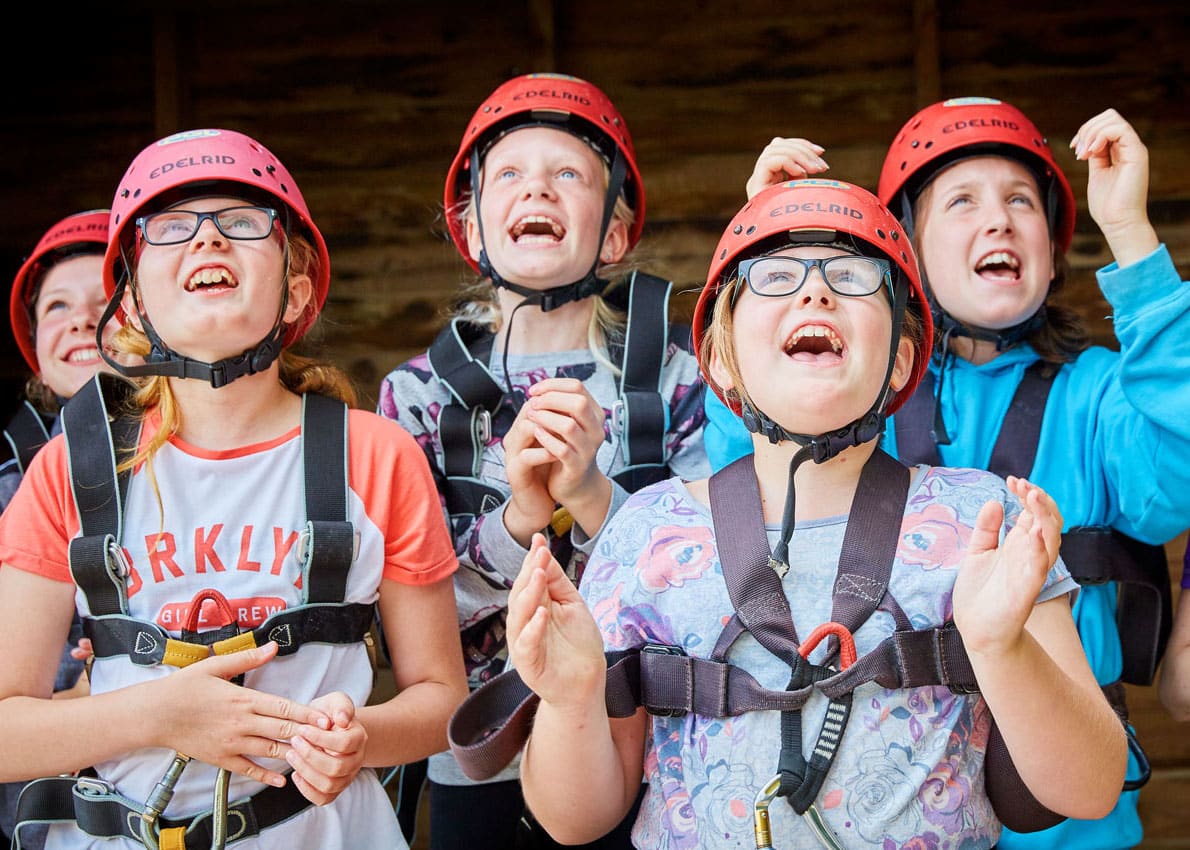
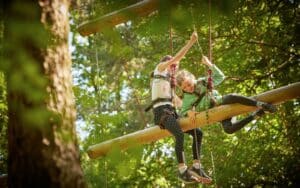 Confidence and independence away from home
Confidence and independence away from home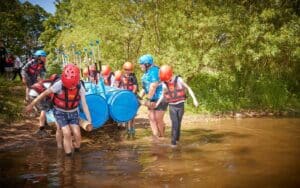 Teamwork and social development through shared experiences
Teamwork and social development through shared experiences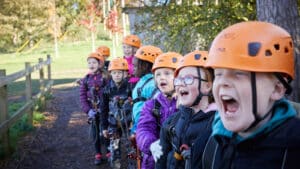
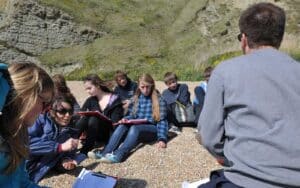 Nurturing a love of learning beyond the classroom
Nurturing a love of learning beyond the classroom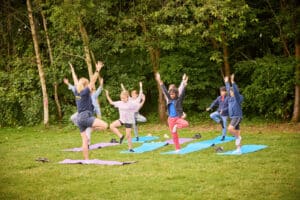 Supporting physical development and healthy habits
Supporting physical development and healthy habits
